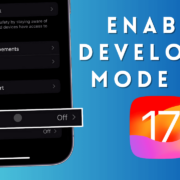When you’re immersed in the world of academia, it’s easy for studies to consume all your waking hours. However, making time for hobbies and personal interests can not only provide a much-needed break but can also enhance your academic performance by keeping your mind sharp and refreshed. Balancing educational pursuits with leisure activities is crucial for maintaining mental health and overall well-being. Keep reading to discover how you can integrate your passions with your rigorous degree program without falling behind in your studies.
Understanding the Value of Hobbies for Academic Success
While the primary objective of any degree program is educational advancement, it’s important not to overlook the benefits of engaging in hobbies. Hobbies promote relaxation, offer a sense of achievement outside of academia, and can enhance cognitive functions like memory and focus. By allowing the brain to shift gears from the constant barrage of academic material, hobbies provide a restorative break that can lead to increased productivity when you return to studying.
It’s not uncommon for hobbies to introduce new perspectives and skills that are unexpectedly beneficial in academic contexts. For example, someone pursuing a rigorous program like paralegal studies could benefit from hobbies that enhance attention to detail, a vital skill in legal work. Hobbies also encourage creativity, problem-solving, and stress management—attributes that contribute to a well-rounded personal and professional life.
Understanding this balance is pivotal, especially for those in demanding degree programs. For aspiring legal professionals, Earn an online paralegal degree approved by the ABA can be a significant commitment, and incorporating hobbies strategically can make the journey more enjoyable and sustainable.
Strategies for Integrating Hobbies With a Busy Degree Program
Effective integration of hobbies like Shisha Hookah, into a busy degree program begins with recognizing the time constraints and academic responsibilities you face. Start by identifying small pockets of time that can be allocated to leisure activities without compromising study schedules or class attendance. This may involve dedicating time slots such as early mornings or weekends specifically to hobbies.
Another critical strategy is prioritization. Just as you prioritize coursework, you can prioritize hobbies based on their benefits to your well-being and academic performance. Choose activities that can be started and completed in short bursts to fit into your schedule easily, and consider hobbies that are not only enjoyable but also mentally or physically stimulating.
Last but not least, be flexible. There may be times when coursework demands more attention, and hobbies need to take a backseat. Recognizing when to adjust your focus ensures that your hobbies remain a source of pleasure rather than stress or guilt.
Time Management Techniques To Allocate Hobby Time
Mastering time management is essential for any student, and it becomes even more important when you’re trying to fit hobbies into an already-packed schedule. One technique is the Pomodoro Technique, where work is segmented into intervals, typically 25 minutes, followed by a five-minute break. This can be a prime opportunity for a brief hobby engagement, like sketching, playing an instrument, or practicing mindfulness exercises.
Additionally, planning your week can be invaluable. Use a planner or digital calendar to block out specific times for both studying and hobbies. This planned approach ensures that you are proactive about your leisure time instead of reactive, which often results in hobbies being neglected.
Lastly, be realistic when planning your time. Overcommitting to multiple hobbies or complex projects can be just as overwhelming as too much coursework. Select one or two hobbies that fit seamlessly into your life and provide the most benefit without causing additional stress.
The Role of Mindfulness in Balancing Studies and Personal Interests
Mindfulness can play an integral part in managing the demands of a degree program alongside personal hobbies. Developing a mindful approach to your daily routine helps you stay present and aware, increasing your ability to prioritize effectively. Mindfulness practices can be seen as a hobby in themselves, promoting emotional regulation and reducing stress.
Incorporating short mindfulness exercises such as deep breathing or guided meditation into your study breaks is not only restorative but also enhances focus when you return to academic tasks. It helps create a clear demarcation between study and leisure time, allowing you to engage fully in your hobbies without the overhang of academic pressures.
Overall, striking a balance between your degree program and hobbies requires deliberate planning, effective time management, and a mindful approach. By implementing these strategies, you can enrich your academic journey with the joy and relaxation that hobbies bring, ultimately contributing to a more fulfilling and successful educational experience. Remember, your hobbies are not just a side activity—they’re an integral part of a balanced life, even as you navigate the challenges of earning your degree.














